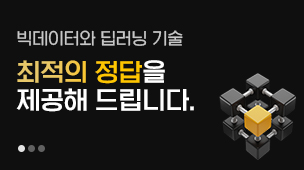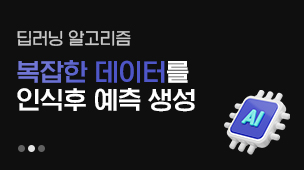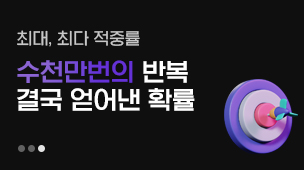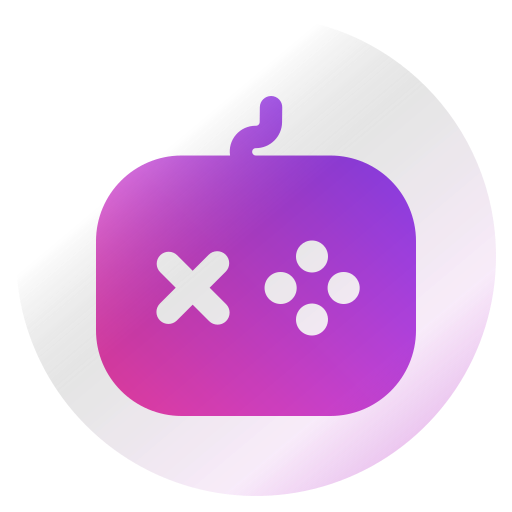The No. 1 Question Everyone Working In Treatments Of ADHD Must Know Ho…
페이지 정보

본문
Medications and Other Treatments For ADHD
 Everyone reacts differently to medication So finding the best treatment can take time. It's also crucial to combine medications with other treatments that treat behavioral and emotional issues.
Everyone reacts differently to medication So finding the best treatment can take time. It's also crucial to combine medications with other treatments that treat behavioral and emotional issues.
Adults with ADHD often have trouble getting good quality sleep. A consistent bedtime can help. Sleep deprivation makes ADHD symptoms worse.
Medication
Stimulants can help people with ADHD improve their ability to concentrate and manage impulses. Response rates of 70-80% are achieved with stimulants. These medications can cause adverse effects, but they are generally regarded as safe when taken according to the prescription. They are not considered to be habit-forming and there is no evidence that they increase the risk of addiction or abuse. It is crucial to inform your healthcare professional of any other medications or supplements you are taking or are considering. They can interact with stimulants and adversely impact the treatment of your child.
The use of medicines can be done by itself or in conjunction with other treatments like behavioral therapy and training for skills. Combining treatments is often more effective than utilizing just one. Both long-acting and short-acting medications are available. Short-acting stimulation is taken as needed while long-acting stimulation is typically taken once or twice daily.
Your healthcare provider may need to test a variety of dosages and medicines before settling on the one that works best for your child or you. They will be attentive to side effects and observe your child's behaviour to ensure that the medication is effective. Your child's healthcare provider will also discuss how to use the medication and may ask you or your child to fill out behavior rating scales, track changes in targets and notice any other signs that could appear.
Bupropion SR boosts the level of a chemical called noradrenaline within the brain. This chemical helps transmit messages between brain cells. It helps you concentrate on your task, pay attention and manage your impulses. It can be offered to adults, teenagers or children who are older than 5. Children with severe symptoms of Tourette Syndrome or other medical conditions such as congenital cardiac disease aren't recommended to receive this treatment.
Behavioral therapy
Behavioral therapy is a crucial part in treating ADHD. In these sessions, therapists assist people with ADHD improve their ability to manage their time and learn strategies to manage their behavior. They can also assist people find natural ways to treat adhd to cope with stressful situations. They can also assist people who have co-occurring mental disorders like depression or anxiety.
ADHD symptoms can affect both adults and children. These symptoms can include difficulties at school or at work, problems with family and friends, as well as emotional issues. Children and teens may not be aware of their issues and may therefore hide them from others or have difficulty telling their parents. Adults who aren't diagnosed with ADHD may face a variety of issues, such as financial and work-related issues.
The treatment for ADHD is often comprised of medications and psychotherapy. The medications are designed to improve the concentration and focus of people who suffer from ADHD. They achieve this by boosting certain chemicals in their brain. Stimulants are the most frequently prescribed treatment for ADHD. They increase the levels dopamine and norepinephrine in the brain. Amphetamines and methylphenidate are two examples of these drugs. Nonstimulants are also available, and don't increase the levels of these chemicals.
Under medical supervision, stimulant medicines are safe and effective. They can interact with other drugs. Inform your doctor if taking any other medications. Some stimulants may also increase the risk of developing heart disease or high blood pressure if you have these conditions. Discuss with your doctor any health issues or allergies. Some medications can also cause sleep problems which can be a problem for people with ADHD.
Psychotherapy
Psychotherapy is the most effective method of treatment of adult adhd diagnosis and treatment for many adults. This type of therapy helps people deal with the symptoms and strengthens relationships damaged by their negative behavior. It also provides the opportunity to increase self-esteem and overcome feelings of shame or guilt.
Psychotherapy is usually conducted by professionals in mental health. The therapist will examine the sufferer of ADHD to determine what is causing their symptoms, and then provide recommendations for treatment. This evaluation will consist of an account of the person's symptoms and medical and family histories, and psychological testing to determine whether the symptoms are connected to anxiety, depression, or other disorders.
Stimulants are among the most frequently prescribed medications for treating adhd without medication ADHD and work by boosting levels of certain brain chemicals. Amphetamine and methylphenidate are two of the most popular stimulants. A doctor may prescribe non-stimulant drugs like bupropion or Atomoxetine. These drugs work slower than stimulants, and are an ideal option if have difficulty taking stimulants as a result of health problems or side effects.
Cognitive behavioral therapy is a kind of talk therapy that can assist you in changing negative thoughts and behaviors. It can teach you how to deal with stress and emotions as well as how to modify behavior that is not helpful. CBT can be completed via the internet, over the phone or in person.
Another type of talk therapy is called dialectical behavior therapy (DBT). This therapy teaches you techniques for dealing with anger and other difficult emotions. It also focuses on improving your executive functioning abilities. You can receive DBT in person or online and also through group therapy sessions.
Relaxation techniques
Relaxation techniques can be a powerful technique to calm the ADHD brain. They can aid children and adults relax, which can improve their mood and ability to focus. These techniques include deep breathing, mindfulness meditation and exercise. They also work well in conjunction with other treatments for ADHD like dietary changes and structured routines.
It is essential to practice these techniques since people suffering from ADHD often have trouble with anxiety and stress, which can worsen their symptoms. They also experience unstable emotions, which can lead to anger and depression. This rollercoaster of emotions can be physically and emotionally exhausting and even erode their self-worth.
According to Developing Minds research, relaxation techniques can lower a child’s blood pressure, heart rate and skin temperature. They also assist them in falling asleep more easily and boost their overall concentration and coping skills. They can also help people with ADHD to control their emotional instability, impulsivity, and increase their problem-solving abilities and social skills.
Deep breathing is a very effective relaxation technique. It activates the parasympathetic system and stops the stress response. It is easy to do anyplace and doesn't require any special equipment or training. Sit in a comfortable posture and close your eyes to practice the technique. Try to count your breath and then breathe deeply. You can also try a technique called Tour Your Senses to connect with your five sensory organs and reduce feelings.
Another method of relaxation that is effective is mindfulness meditation, which involves paying attention to the present moment and letting your thoughts flow without judging. It is best to start by having a short practice and gradually increase the duration.
Counseling
Medicines are the primary method of treating ADHD, but they aren't the only treatment option. Cognitive therapy for behavioral issues can help those who suffer from ADHD better control their symptoms and improve their everyday functioning. Psychotherapy can help them improve their communication skills and coping capabilities and address any mental issues like anxiety or depression that could be caused by their ADHD.
Symptoms of ADHD can affect school, work, and relationships. To diagnose the condition, a doctor must examine a person's behavior over time and identify at least six of the symptoms listed below. The symptoms must be present in at least two environments and have significant effects on daily functioning. They must have been present before age 12 and persist for at minimum six months. In addition to inattentive and hyperactive/impulsive symptoms, people with the condition have trouble staying focused during activities and make careless mistakes.
Children with ADHD can be troubled socially and have difficulty forming close bonds due to their behavior. Social training can help them understand how to interact with peers in a positive way and develop self-esteem. In the same way, family counseling can teach family members how to handle the child's ADHD and improve the quality of the relationship.
When you are deciding on a medication for yourself or your child, it's essential to consult an expert in medicine. They will be able to determine the appropriate dosage and also monitor any side effects. They will also be able to advise you on any foods drinks, supplements, or medicines that may interfere with the effectiveness of the drug.
 Everyone reacts differently to medication So finding the best treatment can take time. It's also crucial to combine medications with other treatments that treat behavioral and emotional issues.
Everyone reacts differently to medication So finding the best treatment can take time. It's also crucial to combine medications with other treatments that treat behavioral and emotional issues.Adults with ADHD often have trouble getting good quality sleep. A consistent bedtime can help. Sleep deprivation makes ADHD symptoms worse.
Medication
Stimulants can help people with ADHD improve their ability to concentrate and manage impulses. Response rates of 70-80% are achieved with stimulants. These medications can cause adverse effects, but they are generally regarded as safe when taken according to the prescription. They are not considered to be habit-forming and there is no evidence that they increase the risk of addiction or abuse. It is crucial to inform your healthcare professional of any other medications or supplements you are taking or are considering. They can interact with stimulants and adversely impact the treatment of your child.
The use of medicines can be done by itself or in conjunction with other treatments like behavioral therapy and training for skills. Combining treatments is often more effective than utilizing just one. Both long-acting and short-acting medications are available. Short-acting stimulation is taken as needed while long-acting stimulation is typically taken once or twice daily.
Your healthcare provider may need to test a variety of dosages and medicines before settling on the one that works best for your child or you. They will be attentive to side effects and observe your child's behaviour to ensure that the medication is effective. Your child's healthcare provider will also discuss how to use the medication and may ask you or your child to fill out behavior rating scales, track changes in targets and notice any other signs that could appear.
Bupropion SR boosts the level of a chemical called noradrenaline within the brain. This chemical helps transmit messages between brain cells. It helps you concentrate on your task, pay attention and manage your impulses. It can be offered to adults, teenagers or children who are older than 5. Children with severe symptoms of Tourette Syndrome or other medical conditions such as congenital cardiac disease aren't recommended to receive this treatment.
Behavioral therapy
Behavioral therapy is a crucial part in treating ADHD. In these sessions, therapists assist people with ADHD improve their ability to manage their time and learn strategies to manage their behavior. They can also assist people find natural ways to treat adhd to cope with stressful situations. They can also assist people who have co-occurring mental disorders like depression or anxiety.
ADHD symptoms can affect both adults and children. These symptoms can include difficulties at school or at work, problems with family and friends, as well as emotional issues. Children and teens may not be aware of their issues and may therefore hide them from others or have difficulty telling their parents. Adults who aren't diagnosed with ADHD may face a variety of issues, such as financial and work-related issues.
The treatment for ADHD is often comprised of medications and psychotherapy. The medications are designed to improve the concentration and focus of people who suffer from ADHD. They achieve this by boosting certain chemicals in their brain. Stimulants are the most frequently prescribed treatment for ADHD. They increase the levels dopamine and norepinephrine in the brain. Amphetamines and methylphenidate are two examples of these drugs. Nonstimulants are also available, and don't increase the levels of these chemicals.
Under medical supervision, stimulant medicines are safe and effective. They can interact with other drugs. Inform your doctor if taking any other medications. Some stimulants may also increase the risk of developing heart disease or high blood pressure if you have these conditions. Discuss with your doctor any health issues or allergies. Some medications can also cause sleep problems which can be a problem for people with ADHD.
Psychotherapy
Psychotherapy is the most effective method of treatment of adult adhd diagnosis and treatment for many adults. This type of therapy helps people deal with the symptoms and strengthens relationships damaged by their negative behavior. It also provides the opportunity to increase self-esteem and overcome feelings of shame or guilt.
Psychotherapy is usually conducted by professionals in mental health. The therapist will examine the sufferer of ADHD to determine what is causing their symptoms, and then provide recommendations for treatment. This evaluation will consist of an account of the person's symptoms and medical and family histories, and psychological testing to determine whether the symptoms are connected to anxiety, depression, or other disorders.
Stimulants are among the most frequently prescribed medications for treating adhd without medication ADHD and work by boosting levels of certain brain chemicals. Amphetamine and methylphenidate are two of the most popular stimulants. A doctor may prescribe non-stimulant drugs like bupropion or Atomoxetine. These drugs work slower than stimulants, and are an ideal option if have difficulty taking stimulants as a result of health problems or side effects.
Cognitive behavioral therapy is a kind of talk therapy that can assist you in changing negative thoughts and behaviors. It can teach you how to deal with stress and emotions as well as how to modify behavior that is not helpful. CBT can be completed via the internet, over the phone or in person.
Another type of talk therapy is called dialectical behavior therapy (DBT). This therapy teaches you techniques for dealing with anger and other difficult emotions. It also focuses on improving your executive functioning abilities. You can receive DBT in person or online and also through group therapy sessions.
Relaxation techniques
Relaxation techniques can be a powerful technique to calm the ADHD brain. They can aid children and adults relax, which can improve their mood and ability to focus. These techniques include deep breathing, mindfulness meditation and exercise. They also work well in conjunction with other treatments for ADHD like dietary changes and structured routines.
It is essential to practice these techniques since people suffering from ADHD often have trouble with anxiety and stress, which can worsen their symptoms. They also experience unstable emotions, which can lead to anger and depression. This rollercoaster of emotions can be physically and emotionally exhausting and even erode their self-worth.
According to Developing Minds research, relaxation techniques can lower a child’s blood pressure, heart rate and skin temperature. They also assist them in falling asleep more easily and boost their overall concentration and coping skills. They can also help people with ADHD to control their emotional instability, impulsivity, and increase their problem-solving abilities and social skills.
Deep breathing is a very effective relaxation technique. It activates the parasympathetic system and stops the stress response. It is easy to do anyplace and doesn't require any special equipment or training. Sit in a comfortable posture and close your eyes to practice the technique. Try to count your breath and then breathe deeply. You can also try a technique called Tour Your Senses to connect with your five sensory organs and reduce feelings.
Another method of relaxation that is effective is mindfulness meditation, which involves paying attention to the present moment and letting your thoughts flow without judging. It is best to start by having a short practice and gradually increase the duration.
Counseling
Medicines are the primary method of treating ADHD, but they aren't the only treatment option. Cognitive therapy for behavioral issues can help those who suffer from ADHD better control their symptoms and improve their everyday functioning. Psychotherapy can help them improve their communication skills and coping capabilities and address any mental issues like anxiety or depression that could be caused by their ADHD.
Symptoms of ADHD can affect school, work, and relationships. To diagnose the condition, a doctor must examine a person's behavior over time and identify at least six of the symptoms listed below. The symptoms must be present in at least two environments and have significant effects on daily functioning. They must have been present before age 12 and persist for at minimum six months. In addition to inattentive and hyperactive/impulsive symptoms, people with the condition have trouble staying focused during activities and make careless mistakes.
Children with ADHD can be troubled socially and have difficulty forming close bonds due to their behavior. Social training can help them understand how to interact with peers in a positive way and develop self-esteem. In the same way, family counseling can teach family members how to handle the child's ADHD and improve the quality of the relationship.
When you are deciding on a medication for yourself or your child, it's essential to consult an expert in medicine. They will be able to determine the appropriate dosage and also monitor any side effects. They will also be able to advise you on any foods drinks, supplements, or medicines that may interfere with the effectiveness of the drug.

- 이전글10 Things That Your Family Teach You About Windows.And Doors Near Me 25.03.31
- 다음글What's The Current Job Market For Upvc Replacement Door Handles Professionals? 25.03.31
댓글목록
등록된 댓글이 없습니다.





 스포츠토토 유용한 정보
스포츠토토 유용한 정보  가상경기 배팅게임
가상경기 배팅게임 